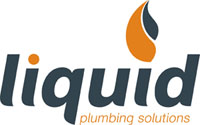Is Solar Worth The Cost in 2020?
Whether you’re building a new Brisbane home or looking to update your existing system, it’s important to choose the right hot water system that suits your family’s needs and also proves cost effective in the long run. One option that is growing in popularity is the solar hot water system, which is known for its reduced impact on the environment and for the potential to help homeowners reduce their electricity or gas bill.
While many people jump at the chance to reduce their power bills, they are often put back by the initial costs of installing a solar panels Australia, which is more expensive when compared to that of traditional electric of gas systems. So taking into account the initial outlay and the potential savings, is a solar hot water system really worth it? To answer that we need to look at few things first.
How much money do you save with solar panels? Will solar hot water reduce my power bills?
To determine whether a solar hot water system is right for your home it’s important to understand your own needs and climate. Because solar hot water systems utilise energy from the sun to heat water, those living in warmer sunny like climates, like us here in Queensland, will be able to generate anywhere from 40 to 90 per cent of their home’s hot water from a solar hot water system. This means you should see a significant decrease in your power bill almost straight away, which will also help you recoup the initial upfront costs of installation.
For those living in colder and wet climates you can still save on your power bill with a solar hot water system but you will need to use a backup system more regularly, especially in winter with shorter days. This also means you may not see big savings straight away (especially if you install in winter) and it may take a little longer to recoup your upfront costs.
What about rebates from my local government?
There are a number of rebates available to help cover the cost of installing a solar hot water system which are set from each state government. Here in Queensland homeowners and small businesses that install a solar hot water system are eligible to apply for the Energex Hot Water Rewards, which allows a rebate of up to $200.
Queensland residents can also apply for the solar panels Australia Government’s Small-scale Renewable Energy Scheme which offer homeowners renewable power incentives in the form of small-scale technology certificates (STCs). An STC is a measure of renewable energy, which can be traded for cash or a discount on the purchase price of the system. The number of small-scale technology certificates that can be created per system is based on geographical location, installation date, and the amount of electricity in megawatt hours (MWh) the system generates or displaces over the course of its deemed generation period. You can calculate your estimated STCs here.
What is the upfront cost of installing a solar hot water system?
The cost of installing a solar hot water system is dependent on a number of factors including:
- Will both your solar collective panels and storage tank be located on your roof (Thermosiphon system) or split/pumped with the storage tank located on the ground or elsewhere in the house or building?
- Are you planning on installing flat panels or evacuated tubes? While evacuated tubes require less panel area and are most efficient they are generally more expensive.
- Can your panels be installed in the ideal north facing and shade free part of your roof? If not you may require a larger sized collection area.
- Will your system’s booster element run on electricity on gas?
Taking all of these factors into account solar hot water systems can range in cost from $3000 to $7000 once fully installed. To better understand your upfront cost of installing a solar hot water system we recommend getting in touch for a tailored quote.
Why install solar? Is a solar hot water system worth it?
If you live in a warm and sunny climate, such as Brisbane, and can afford the upfront costs of a solar hot water system, then yes! Your eligible rebates and direct savings on your power bill will help you recoup your initial outlay costs and have you saving on your bills and helping the environment for years to come.


